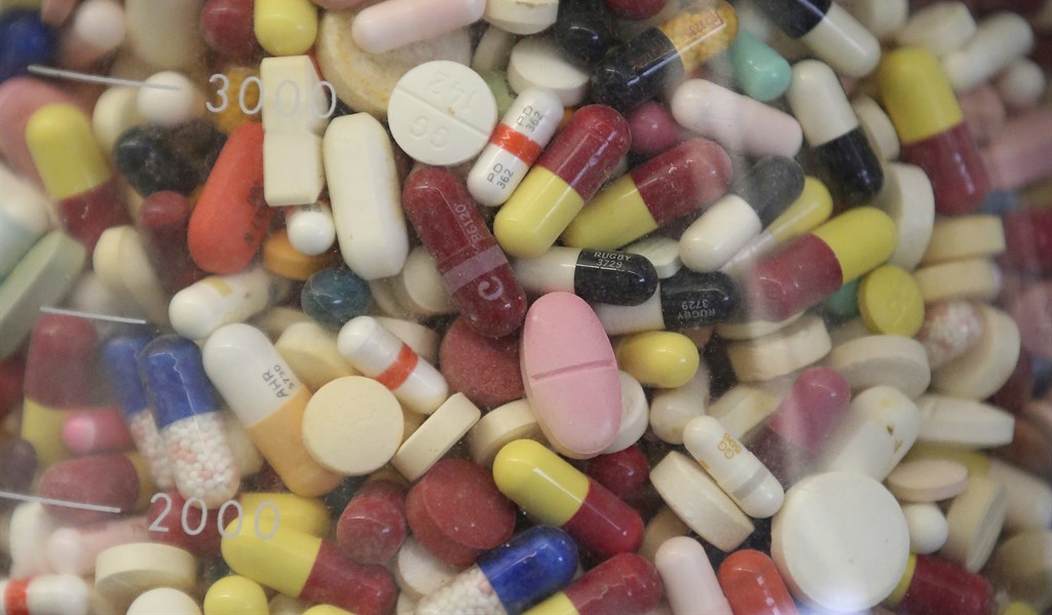During President Trump’s uplifting and unifying first State of the Union address, the president returned to a familiar theme on a desperately necessary topic. When discussing the crisis of high drug prices in American society, President Trump stated, “One of my greatest priorities is to reduce the price of prescription drugs. In many other countries, these drugs cost far less than what we pay in the United States. And it's very, very unfair. That is why I have directed my administration to make fixing the injustice of high drug prices one of my top priorities for the year.”
Then, staring at the members of Congress with flinty resolve, the president promised, “And prices will come down substantially. Watch.”
Knowing President Trump’s track record of getting what he wants, and of sticking to his campaign promises with unflagging determination, many in the president’s own party have begun to seriously ponder what policy options exist to achieve the goal of lowering drug prices. And, in particular, conservatives seeking to avoid the imposition of price controls have seized on a piece of legislation that looked forgotten despite its many merits.
That piece of legislation is the CREATES Act, a bill that has earned public support both from the otherwise Trump-skeptical site RedState and from the libertarian Campaign for Liberty since President Trump’s address. These communities are right to endorse CREATES, for it acts as a remedy to one of the most persistently misrepresented problems in the drug market: namely, the absence of actual…well, markets.
Many Leftists no doubt recoil in shock at this point. After all, they believe that the problem with the pharmaceutical industry is that the free market has given them close to unquestioned monopoly power. But nothing could be further from the truth. To begin with, monopolies are anti-market in and of themselves, because the essence of a market is the existence of competition. And the entire basis of much of the pharmaceutical industry’s business model is the enforcement of legal monopolies through the patent system. And while the means by which pharma abuses that system is worthy of many, many articles in itself, the legal principle that inventing a new drug should translate to an unassailable property right for at least some period of time is an ironclad and necessary part of our legal regime.
Recommended
However, once those property rights expire, competition does kick in, hence the existence of the generic drug market. And one of the essential features of the generic drug market is that pharmaceutical companies should not get to shut out competition arbitrarily by refusing to sell samples of off-patent drugs to legitimate competitors. I say legitimate because, obviously, no one believes that Snake Oil, Inc. should be able to try selling generic versions of potentially dangerous drugs, and brand name companies are well within their rights to refuse to sell samples to those who might do harm to the public health. This is why the FDA employs an extensive vetting process to make sure that any generic drug meets the standards for safety and legitimacy before permitting it to come to market.
Where the problem comes in, is that even when the FDA signs off on generic drugs, pharmaceutical companies can still squirrel out of selling samples of their products to the companies manufacturing those drugs by insisting that their own standards for safety are not met by the generic companies’ clinical trials. And while there are laws that clearly state that such determinations should not be used to quash competition, the mechanisms by which those laws are enforced are presently too weak to prevent that sort of abuse.
That’s where the CREATES Act comes in. In essence, the CREATES Act cracks down on the pharmaceutical industry’s attempts to move the goalposts on what counts as a clinical trial for a new drug. Under CREATES, the rule basically amounts to, “if it’s good enough for the FDA, it’s good enough for Pharma.” No surprise, then, that the bill would also appeal to President Trump, who also praised the FDA in his State of the Union address. “To speed access to breakthrough cures and affordable generic drugs, last year the FDA approved more new and generic drugs and medical devices than ever before in our country's history,” Trump beamed.
Clearly, Trump trusts his FDA, and with good reason. Therefore, in order to keep faith with both the president, and with his own promises, the FDA’s word on clinical trials should be good enough for Pharma. Markets work, but only when competition is the rule, not something that single, dominant industries can deign to allow as they please. The rhetorical groundwork is there for President Trump’s White House to back CREATES without alienating a single constituency on the Right, and while enforcing the pro-American, pro-consumer ideology that the president rightly adheres to. One only hopes that the White House will take the plunge.
























Join the conversation as a VIP Member